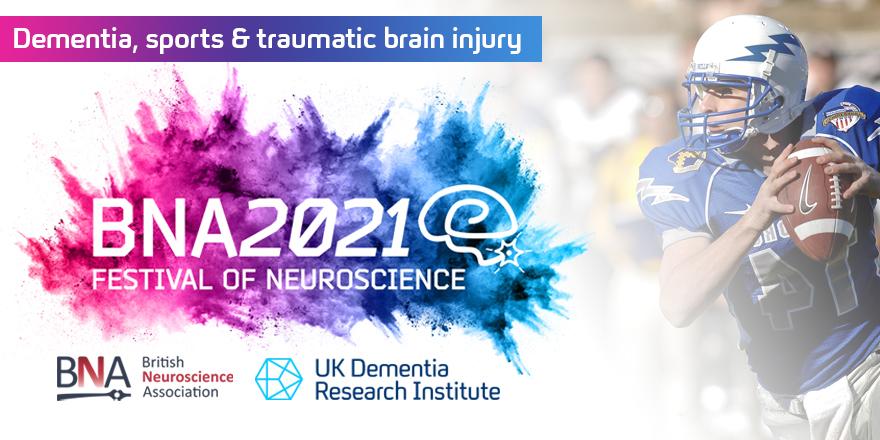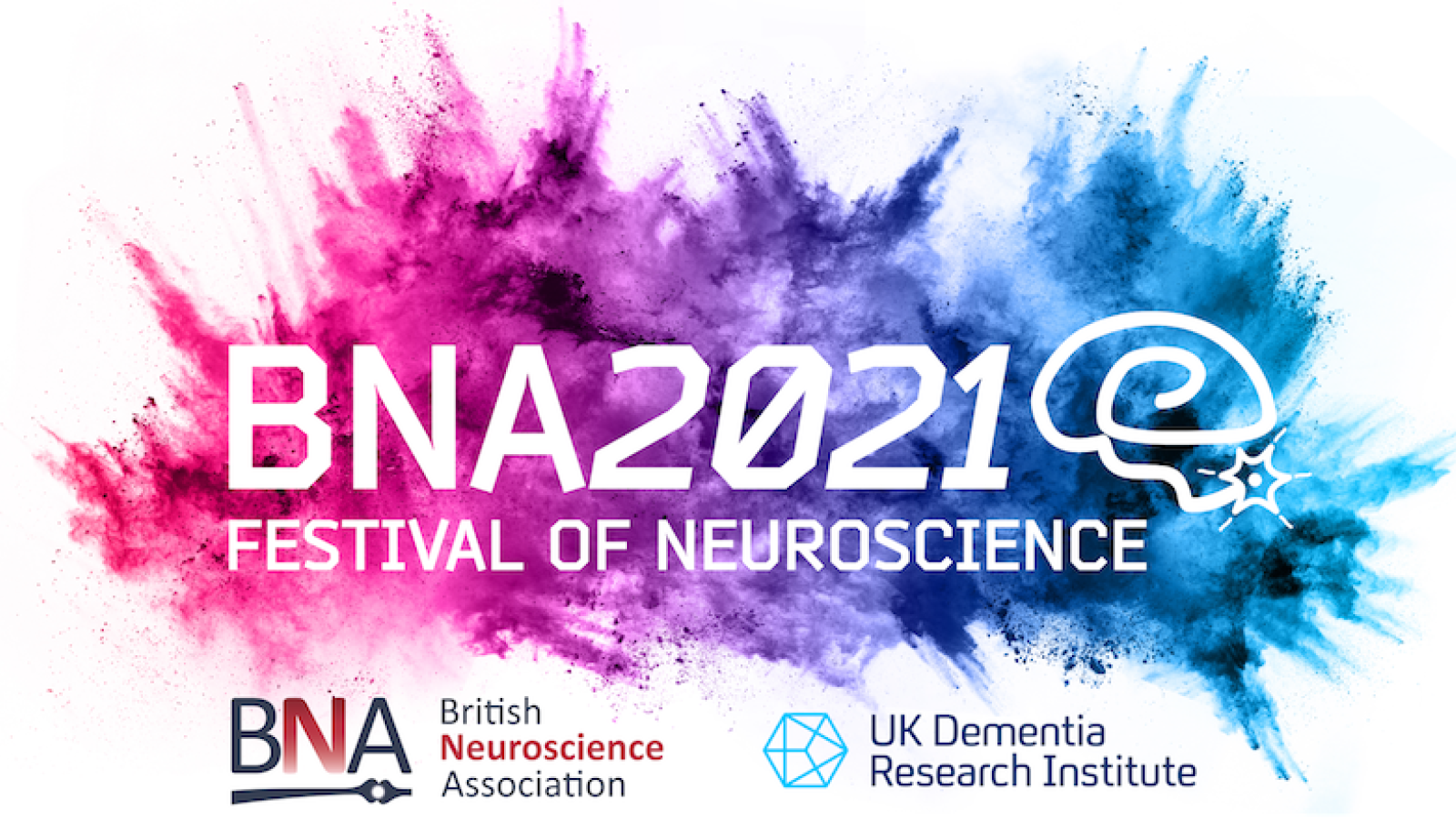In just a few weeks’ time, the BNA Festival of Neuroscience 2021 will kick off with four fantastic days of research symposia, workshops, special events and poster sessions. Bringing together nearly 20 different organisations, the virtual conference promises to be a true celebration of international neuroscience research! We’re proud to be supporting the event as official Festival Partner and have curated a stream of events around the theme of ‘ageing and dementia.’
If you are still planning what sessions to attend or are yet to register (there is still time!), here are five reasons why you should check out the ‘ageing and dementia’ stream at BNA2021.
1. Dive into the hottest topics in dementia research
Put together by our research community, we are delighted to be hosting four scientific symposia on some of the hottest topics in the dementia field:
- Brain resilience to pathology (Monday 12 April)
- Sleep and circadian rhythms (Tuesday 13 April)
- Non-neuronal cells in neurological disease (Wednesday 14 April)
- Dementia, sports & traumatic brain injury (Thursday 15 April)
Hear more about each session from the speakers below!
2. Hear from world-class experts
We’re thrilled to have leaders in the field speaking as part of the ageing and dementia stream. UK DRI Director and Brain Prize winner, Prof Bart De Strooper, will be delivering the UK DRI Plenary Lecture on the preclinical cellular phase of Alzheimer’s disease. Additionally, Prof Sarah Tabrizi (UK DRI at UCL) has been chosen by the Association of British Neurologists to speak on genetic therapies being trialled for Huntington’s disease.
Highlights from the scientific symposia include Potamkin Prize winner and Centre Director, Prof Karen Duff (UK DRI at UCL), presenting on mechanisms of neuronal vulnerability to Alzheimer’s pathology, and Prof William Stewart (University of Glasgow) discussing his work into the association between contact sports and dementia risk.
<p>BNA2021 Festival of Neuroscience</p>
3. Learn something new!
You never know where inspiration for your next project will come from - be sure not to miss an opportunity by checking out the scientific symposia where the latest cutting-edge techniques and research models will be presented. You can also pick-up expert practical advice at our interactive workshop on ‘multi-omics analysis of the brain at single cell resolution’ (Thurs 15 April).
4. Discover how your skills could make an impact in dementia research
Dementia is one the greatest health challenges of our time and investment in this field is increasing year-on-year. From chemists to engineers, bioinformaticians to clinicians, solutions will require a multidisciplinary approach and your skill set could be invaluable. Start building a collaborative network and find out how others are applying their expertise to finding treatments and developing technologies for dementia.
5. Hear about the importance of research for people affected by dementia
We’re delighted to welcome Clinician Prof Nick Fox (UK DRI at UCL) to host a special session with a person living with dementia (Monday 12 April). This is sure to be a powerful reminder of the importance of research and our goals to develop life-changing treatments - a must for anyone studying ageing and dementia.
But don’t just take it from us - hear from the speakers on why you should join us for their symposia.
“The topic of brain resilience is one of the most fascinating and important in the Alzheimer’s disease research field. We do not yet understand why some brain cells and regions do not accumulate Alzheimer’s pathology while others are vulnerable, nor why some people maintain healthy cognitive function despite substantial accumulation of Alzheimer’s pathology that usually causes dementia. Understanding mechanisms of brain resilience is a promising avenue to developing life-changing treatments or strategies to prevent Alzheimer’s disease. In this symposium we will hear from world experts on brain resilience spanning the levels of the synapse, cell, brain, and cognition.”
Prof Tara Spires-Jones (UK DRI at Edinburgh)
Co-chair of 'Brain resilience to pathology'
“I’m looking forward to our session exploring the relationship between sleep and dementia - a fascinating and growing neuroscience field. We’ve decided to approach the topic from different angles, looking firstly at the genetics behind circadian rhythms, then the use of animal models in this field, and finally the clinical findings that are shedding new light on whether sleep is a driver of dementia and how we could approach targeting it.”
Prof Derk-Jan Dijk (UK DRI Care Research and Technology)
Co-chair of 'Sleep and circadian rhythms in dementia research'
“Non-neuronal cells have unquestionable roles in the development of neurodegeneration. Come join us for this live symposium and discussion, where we will travel through the cellular diversity of the brain to learn how interactions between neurons, microglia, astrocytes, and vascular cells contribute to brain dysfunction.”
Dr Soyon Hong (UK DRI at UCL) & Dr Blanca Díaz-Castro (UK DRI at Edinburgh)
Co-chairs of 'Non-neuronal cells in neurological disease'

Thursday 15 April, 09:00-10:20 BST
See full symposium
“The link between head injuries and the development of dementia has recently been thrust into the public spotlight, particularly in the context of sporting and military exposures. We’ve assembled a programme of internationally renowned speakers to talk about the latest scientific advances in the field and whether any actions can be taken to safeguard people’s long-term brain health.”
Dr Neil Graham (UK DRI Care Research and Technology)
Speaker at 'Dementia, sports & traumatic brain injury'
Be sure to check out the whole programme for the UK DRI ageing and dementia stream and come say hi to us at the virtual exhibition stand during the Festival.
Article published: 25 March 2021
